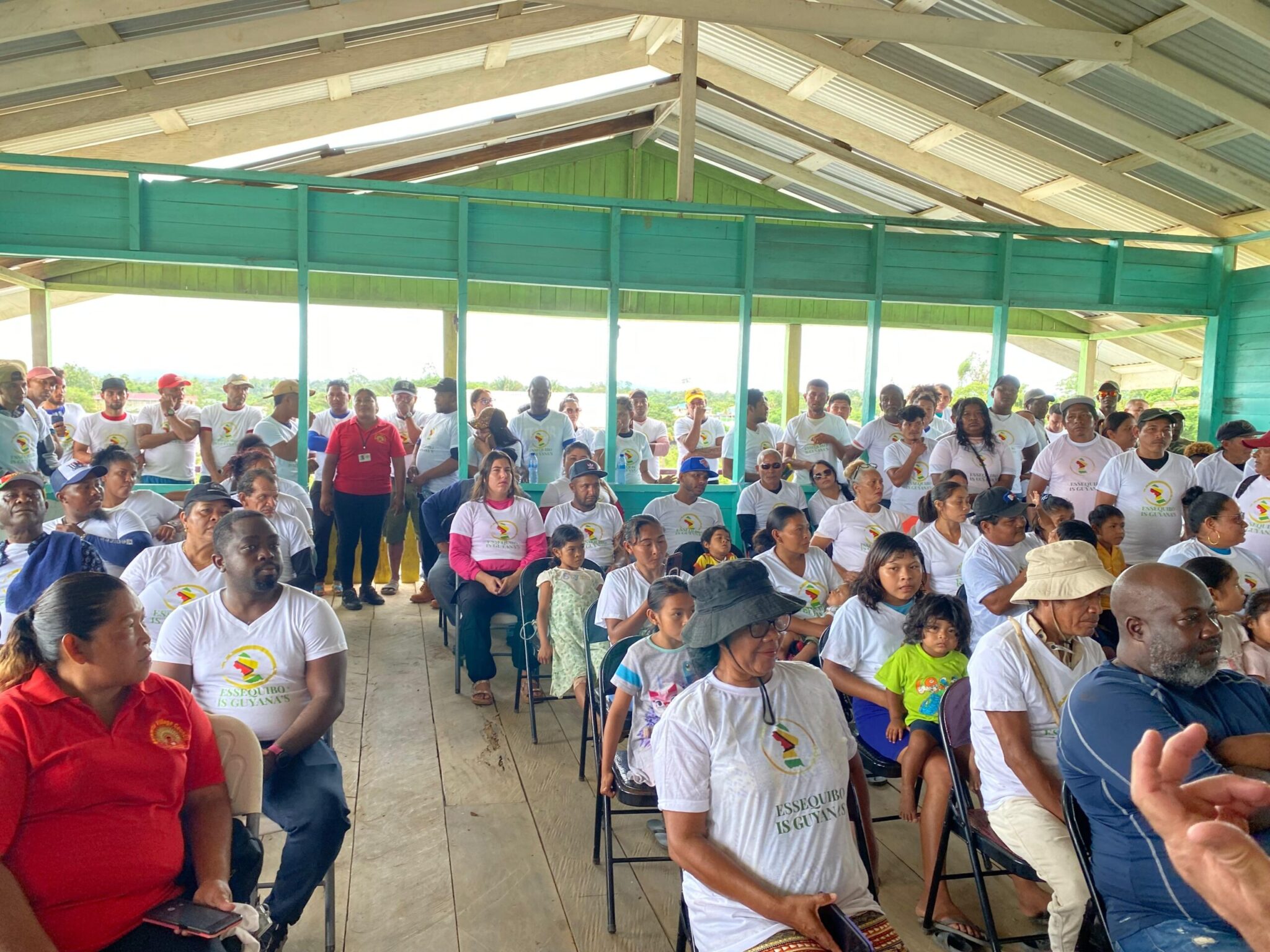Guyanese are resilient in the face of adversity. They are a spirited people, with deep cultural roots and a strong sense of national identity. This much was showcased tenfold today. Love of country was high.
In Venezuela, Nicolas Maduro’s election of a governor to represent Guyana’s Essequibo region in their legislative house was carried out. This, despite international objections and a lack of evidence of any polling on the ground in Guyana.
Today, Guyanese proudly hoisted the golden arrowhead high as they celebrated Guyana’s 59th Independence Day. An occasion made more significant because of Maduro’s intensified efforts to claim what belongs to Guyana.
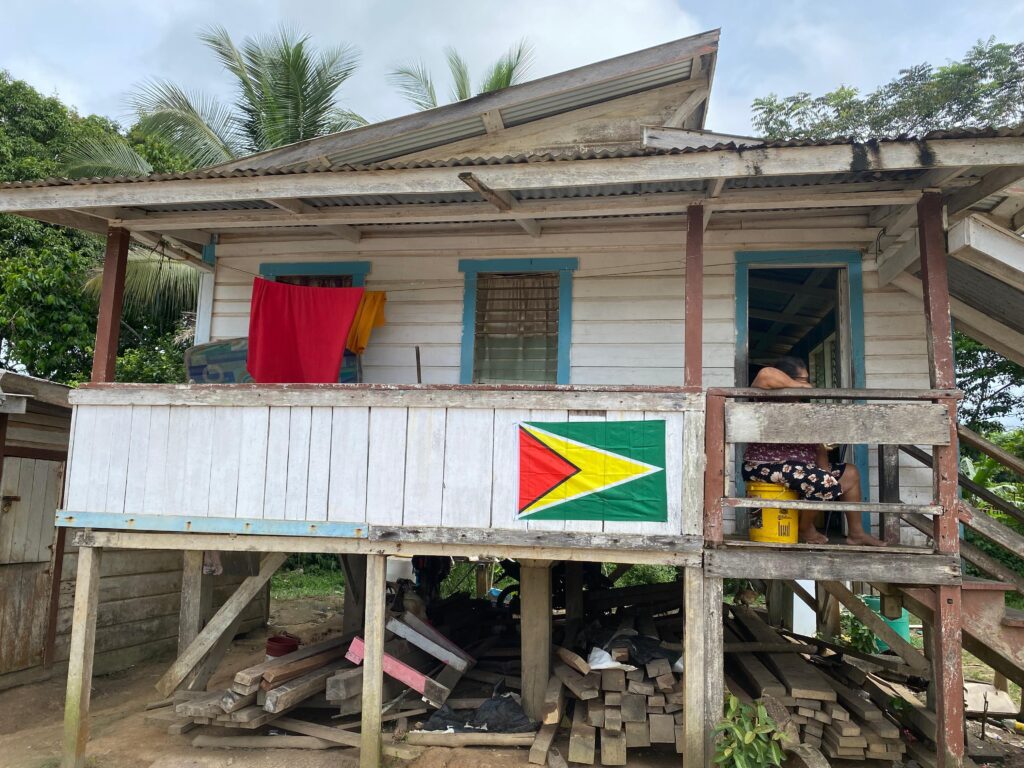
A team of Guyanese journalists visited communities close to the Venezuela border to get a sense of the energy on the ground. In Baramita, Region One, flags flew high everywhere. Over 1,000 Guyanese live here, mostly from the Carib tribe.
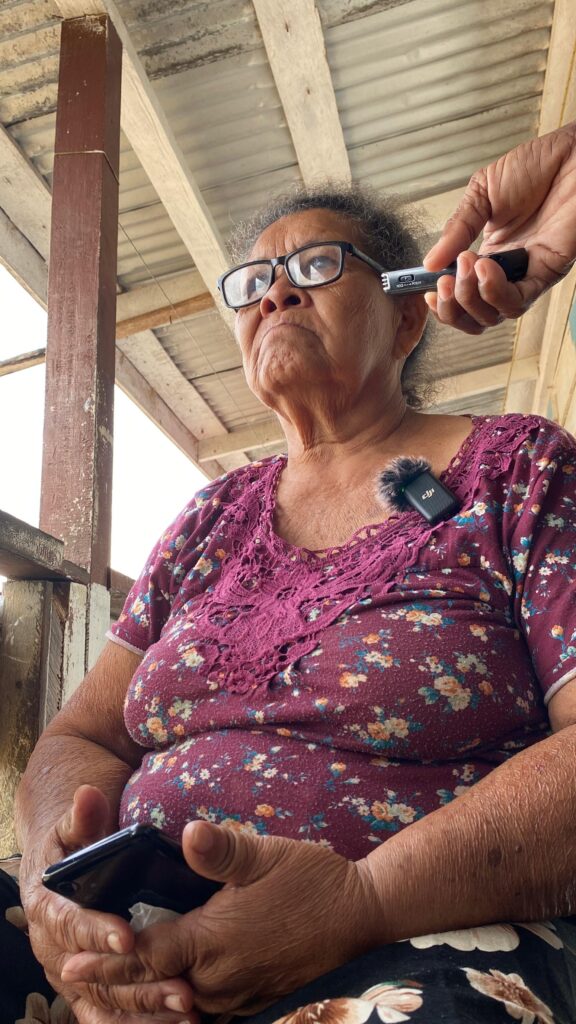
“I love my country,” were the words of Aunty Joyclyn Henry. At 60 years old, she’s been living in Baramita all her life. She was relaxing on her steps when we caught up with her. She has nine children, three of whom are deceased.
Baramita is 15 miles away from the Venezuelan border. Joyclyn once made that journey on foot.
She isn’t tech savvy and wasn’t aware of the elections. What she does know is the resonantly patriotic phrase ‘Essequibo is We Own’.
Yonita James, the Deputy Toshao, said the quiet community has around 100 Venezuelans living there. With the controversy escalating, the leaders constantly reassure villagers to “not be scared”.
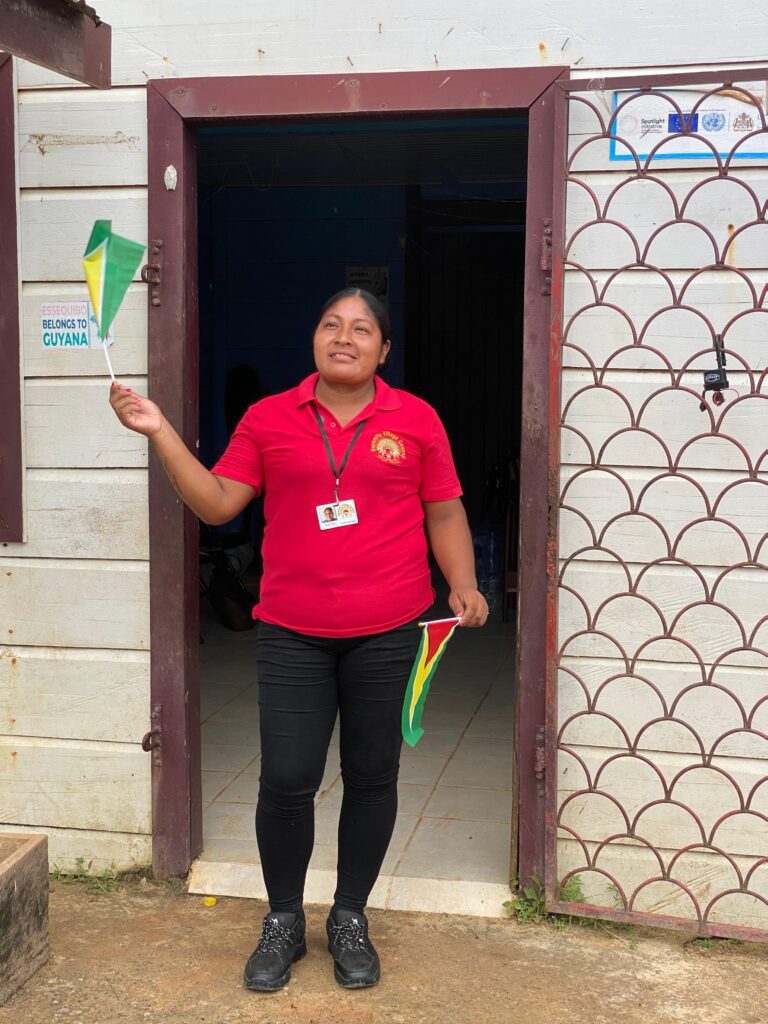
“They [Maduro] is trying to frighten we up, but we not frighten,” she affirmed. “We encourage them to stay strong because we done know Essequibo is ours.”
Confidently, Yonita stated she would not allow her village to be “brainwashed” by the propaganda coming out of Venezuela.
At Baramita’s community centre, people gathered in t-shirts boldly proclaiming “Essequibo is Guyana.” Everyone, including Venezuelans, donned them.
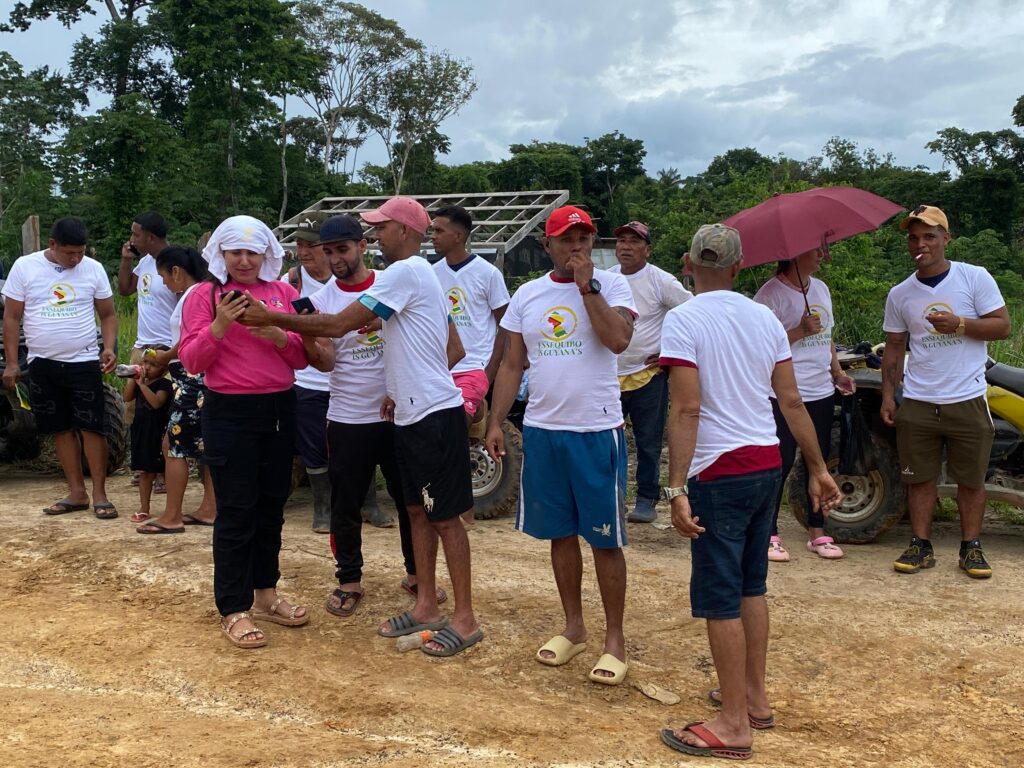
When asked about Maduro’s claim, a Venezuelan man agreed but requested to remain anonymous.
Although he spoke little English, he expressed that he is always scared when asked this question. He said while he understands that Essequibo belongs to Guyana, claiming it outright could expose him to persecution if he returns to Venezuela.
“Me history is that this is Guyana, this is you quarter, you people… We came here for better life. Me know this is not me country,” he shared in broken English.
No evidence of elections
In Baramita, there was no evidence of election activity.
“We have domain awareness all across our borders,” Government Security Advisor, Captain Gerry Gouveia told the media. “Military deployment and police deployment is directly proportional to the threat that we feel.”
In other border communities, the air was similar, calm and order firmly remained.
The World Court is currently considering the validity of the 1899 Arbitral Award that established the boundary between Venezuela and then-British Guiana. Venezuela accepted the award for decades before declaring it null and void in 1962. It has now extended its claim to offshore waters that include portions of Guyana’s Exclusive Economic Zone (EEZ) rich in oil and gas.
Earlier this year, a Venezuelan Coast Guard patrol vessel approached the Prosperity floating production storage and offloading (FPSO) unit, marking its most easterly incursion into Guyana’s waters where ExxonMobil operates one of the world’s fastest-growing oil developments in the Stabroek Block.
The United States has repeatedly warned that Venezuela could face consequences if it continues to provoke Guyana. A final ruling by the ICJ in the territorial case could come in 2026.


